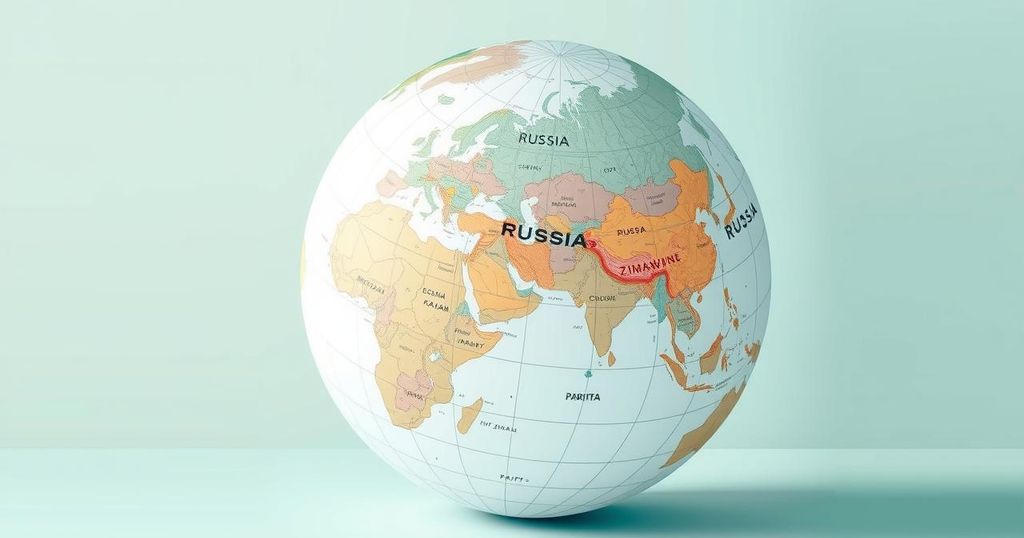This article reviews the evolving diplomatic relationship between Russia and Zimbabwe, focusing on the recent meeting between Sergey Lavrov and Amon Murwira. It highlights key areas of cooperation, including trade, education, and regional stability efforts. While historical ties are strong, challenges persist in transforming agreements into concrete actions. Enhanced engagement is essential for mutual benefits.
Russia and Zimbabwe have been cultivating diplomatic relations, culminating in a significant meeting on March 6, 2025, between Foreign Minister Sergey Lavrov and Zimbabwean Foreign Minister Amon Murwira. This meeting marked Murwira’s debut in his new role, and underscored the commitment to foster bilateral cooperation. Historical groundwork laid by previous administrations positions Murwira to navigate current geopolitical climates while promoting mutual benefits for both nations.
At the media conference following their discussions, Minister Lavrov articulated the importance of Russia-Zimbabwe relations, emphasizing equality and mutual respect. He referenced Zimbabwean President Emmerson Mnangagwa’s intent to solidify partnerships previously established with President Vladimir Putin, such as those discussed during the St. Petersburg International Economic Forum in June 2024. This foundational approach is critical amid evolving international dynamics.
Focusing on current bilateral cooperation, Lavrov highlighted several collaborative areas including trade, economic partnerships, mineral resource development, and technology exchange. Additionally, cultural connections are maintained through educational programs, with Russia providing 125 annual scholarships to Zimbabwean students. Enrolment in online Russian language courses demonstrates growing interest, suggesting potential for increased scholarship opportunities.
Regional advancements showcase strengthened ties between Zimbabwe and Russian regions, including an agreement for collaboration with the Sverdlovsk Region. Zimbabwe’s leadership within the Southern African Development Community (SADC) further enhances its role in regional dialogues, particularly in conflict resolution efforts within Africa’s turbulent nations.
Amidst reinforcing military and security cooperation, Russia is keenly focused on improving stability in Africa. This effort includes training Zimbabwean personnel to enhance capabilities against organized crime and terrorism. Despite efforts toward international cooperation, Zimbabwe continues to seek sustainable economic recovery in the face of ongoing challenges.
Notably, Russia has seen some setbacks in its investments, notably the abandonment of the $3 billion Darwendale platinum project. Despite these challenges, humanitarian gestures, such as grain supplies, remain part of Russia’s engagement strategy with Zimbabwe, underlining a commitment to regional support.
With the global landscape shifting, African nations are increasingly seeking ties beyond Western spheres, with Zimbabwe expressing interest in joining BRICS. Strategic partnerships, such as an MoU signed between ZimTrade and Business Russia, indicate that Zimbabwe is poised to leverage Russian expertise to boost foreign investment.
However, both nations face the challenge of actualizing their agreements into tangible outcomes. Speaker of the Zimbabwean Parliament, Jacob Mudenda, articulated the need for these discussions to transition into concrete actions that enhance bilateral cooperation. Unless policies are promptly implemented, the current engagement may not yield the desired impact historically sought by Zimbabwe.
In conclusion, the evolving Russia-Zimbabwe relationship represents a complex interplay of historical ties, geopolitical aspirations, and contemporary challenges. Through strategic discussions and agreements, both nations aim to foster economic growth and stability. However, the success of these initiatives hinges on actionable policies and responsive governance that can bring about substantial benefits for both Russia and Zimbabwe in their shared pursuits.
Original Source: moderndiplomacy.eu




